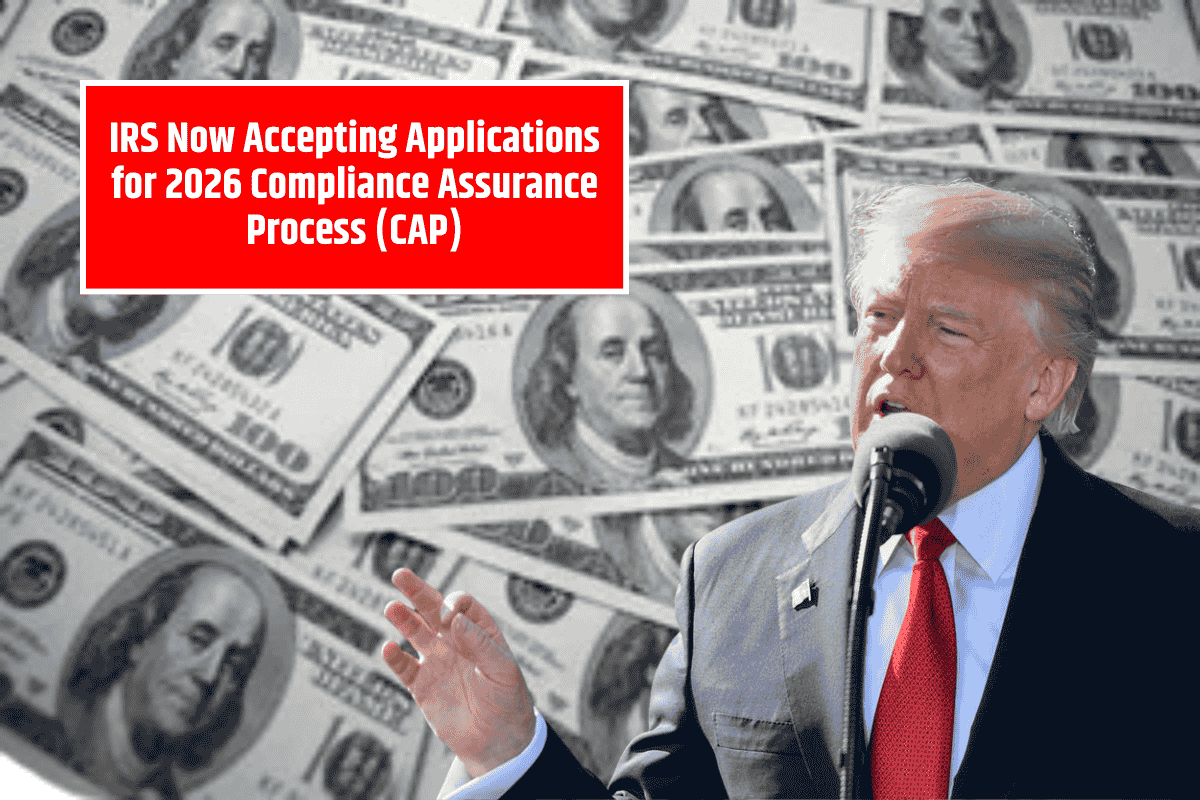The IRS is accepting applications for the 2026 Compliance Assurance Process (CAP) from September 3 to October 31, 2025. Launched in 2005, the CAP program fosters a transparent and cooperative relationship between large corporations and the IRS, helping resolve tax issues before filing returns to ensure smooth tax compliance.
Key Criteria for Eligibility
To qualify for the CAP program, applicants must meet the following requirements:
Possess assets of $10 million or more.
Be a U.S.-based corporation, which is either publicly traded and legally required to file SEC reports (10-K, 10-Q, and 8-K) or a privately held C corporation, including those with foreign ownership.
This program is a great opportunity for large corporations to ensure their tax compliance and streamline the tax process.
Financial Documentation Requirements
Applicants must submit comprehensive financial documentation, including:
Audited financial statements prepared in accordance with U.S. GAAP, IFRS, or another IRS-approved method.
An unqualified audit opinion from an independent auditor.
Quarterly unaudited financial statements for ongoing transparency.
These documents are essential for applicants seeking participation in the CAP program.
Compliance with Government Agencies
Applicants must not be under investigation or involved in litigation with any government agency. Any ongoing investigations could restrict the IRS’s access to current tax records and affect eligibility for the CAP program.
Key Updates for the 2026 CAP Application Period
Open Year Criteria
The open year criteria remain in place, with applicants allowed to submit only one open declaration and one unsubmitted open declaration at the start of their fiscal year. Exceptions are made for:
Pending Advance Pricing Agreements (APA)
Assistance from the Competent Authority
These exceptions allow for necessary flexibility.
Legislative Changes: IRA and CHIPS Acts
The introduction of the Inflation Reduction Act (IRA) and the CHIPS Act brings significant changes to tax regulations, including:
Corporate Alternative Minimum Tax (CAMT)
Excise tax on stock buybacks
Clean energy credits
Taxpayers must carefully consider these provisions as they may affect their eligibility and tax planning for the CAP program. The IRS has introduced an exception to the closed/open year eligibility requirement for unresolved tax issues related to these Acts.
Expanded Eligibility Criteria for the 2026 CAP Cycle
This year, the IRS has expanded eligibility for the 2026 CAP cycle, offering more businesses a chance to participate:
Publicly Traded C Corporations: Eligible as before.
Private C Corporations: Now eligible, including those with foreign ownership.
Private Equity Applicants: Welcome, provided they meet specific IRS requirements.
Applicants must submit audited financial statements specific to the entity applying for CAP — statements from related entities or parent companies will not be accepted.
